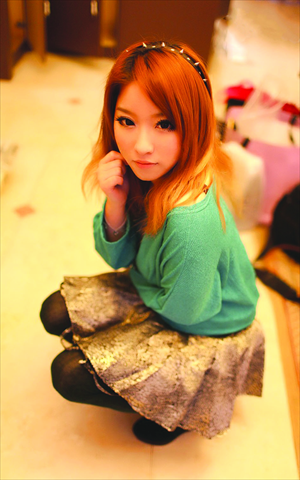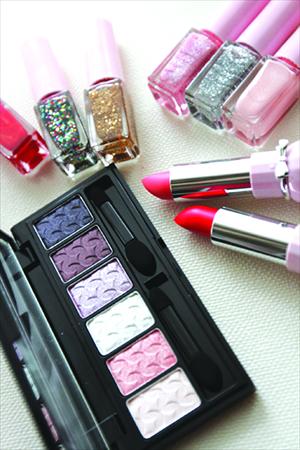Beauty bloggers turn their hobby into real business opportunities


Beauty blogs aren't just frivolous endeavors. They can be big business. Products recommended on the hottest blogs will go viral on the Internet the next day. Skincare shops on Taobao, China's largest online retailer, will rush to put blogger-mentioned products on virtual shelves and label them "recommended by so-and-so blogger."
A beauty blog can cover many things, such as introducing the value of a specific cosmetic item, skincare routines, new trends in the market and so on.
There have been thousands of active Chinese beauty bloggers on the Internet. Most are young women in their 20s or 30s, and outside of their blogging, many do not work in the cosmetics field. The most influential ones have years of experience in blogging, and their popularity did not happen overnight.
Kristi Wang, 30, who works in the manufacturing industry, writes the fairly popular blog "Little K's Beauty Diary." On Sina Weibo, China's most influential microblog, she has more than 120,000 followers.
Wang thinks that being sincere and earnest about blogging is the reason why she stands out above the rest.
"[The secret] is persistence, and my 'tolerable' looks," joked Zhao Jing, 28, a beauty blogger known as "Rose MM." She has about 200,000 followers on Weibo.
Sophia Liu, who started her blog "Sophia, Oui, Moi" three years ago and now has about 19,000 followers, thinks her obsession with beauty products is what has kept her involved.
Popular bloggers need to be adequately financed. They are expected to try out the most prestigious, expensive or newly-launched products, and then report their thoughts back to readers.
Liu admits that she has spent a great deal of money on buying all kinds of products. Zhao said that among the beauty bloggers, many come from rich families.
The beauty bloggers' fame has changed their daily lives. For example, they might be recognized by fans on the street and have to be more discreet about their behavior in order to maintain positive online reputations.
The downside is that when speaking highly of certain products, there will be suspicions about whether the bloggers are corporate puppets.
In response to those accusations, Liu said that she has a clear conscious and won't let the readers down. But some of the accused bloggers actually do things for companies.
"As far as I know, many bloggers charge certain brands money for recommending their products," said Wang.
The bloggers are starting to make money out of their fame, too. The top ones can make writing their full-time job, and can even publish books.
Many of them decide to start businesses for overseas purchasing or online shopping so that they can earn some cash for all their blogging efforts. Wang has started her own online store, selling products she selected from abroad. Zhao plans to write a book in the future and open her own buyer's shop.
Knowing the business potential from the popularity of those bloggers, cosmetic brands also invite the bloggers to product launch events or grand openings of stores.
Liu said cooperation between enterprises and bloggers is very common.
"Bloggers get commissions for helping with the promotion of a product," said Liu. "Many bloggers are Public Relations (PR) officers themselves, and many have signed long-term contracts with brands."
With the gradual monetization of beauty blogging, many blogs start to lose their original fan base. Many readers have lost trust in the bloggers.
"When some of the blogs I like become purely commercial, I stop following," said Liu.
However, bloggers have their own bottom lines. Zhao has declined many brands that approached her for some glowing reviews.
"Some people use blogging as a tool for gaining profits, but some just try to influence other people's lifestyles," said Wang. "It all depends on how responsible the blogger is."